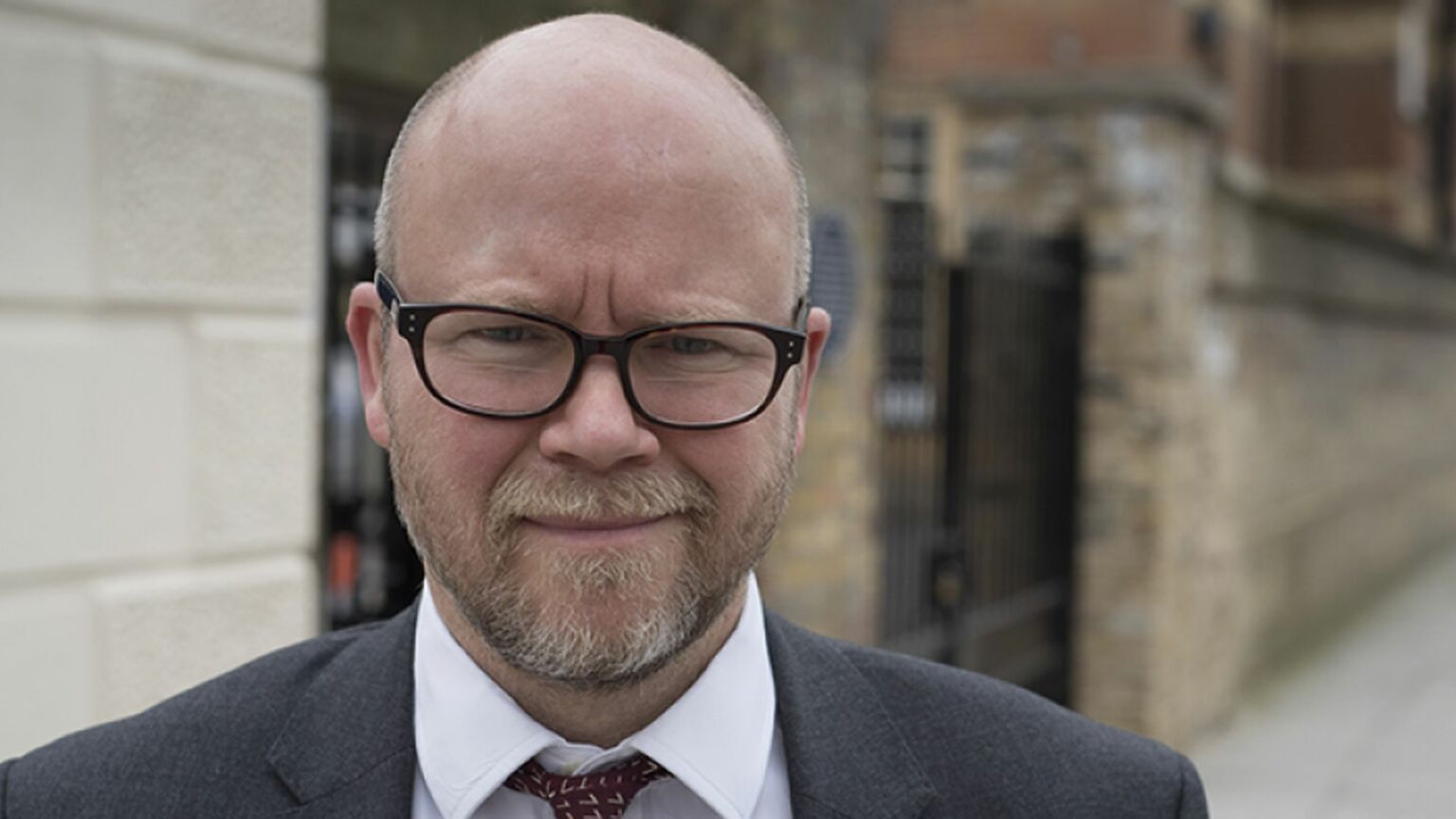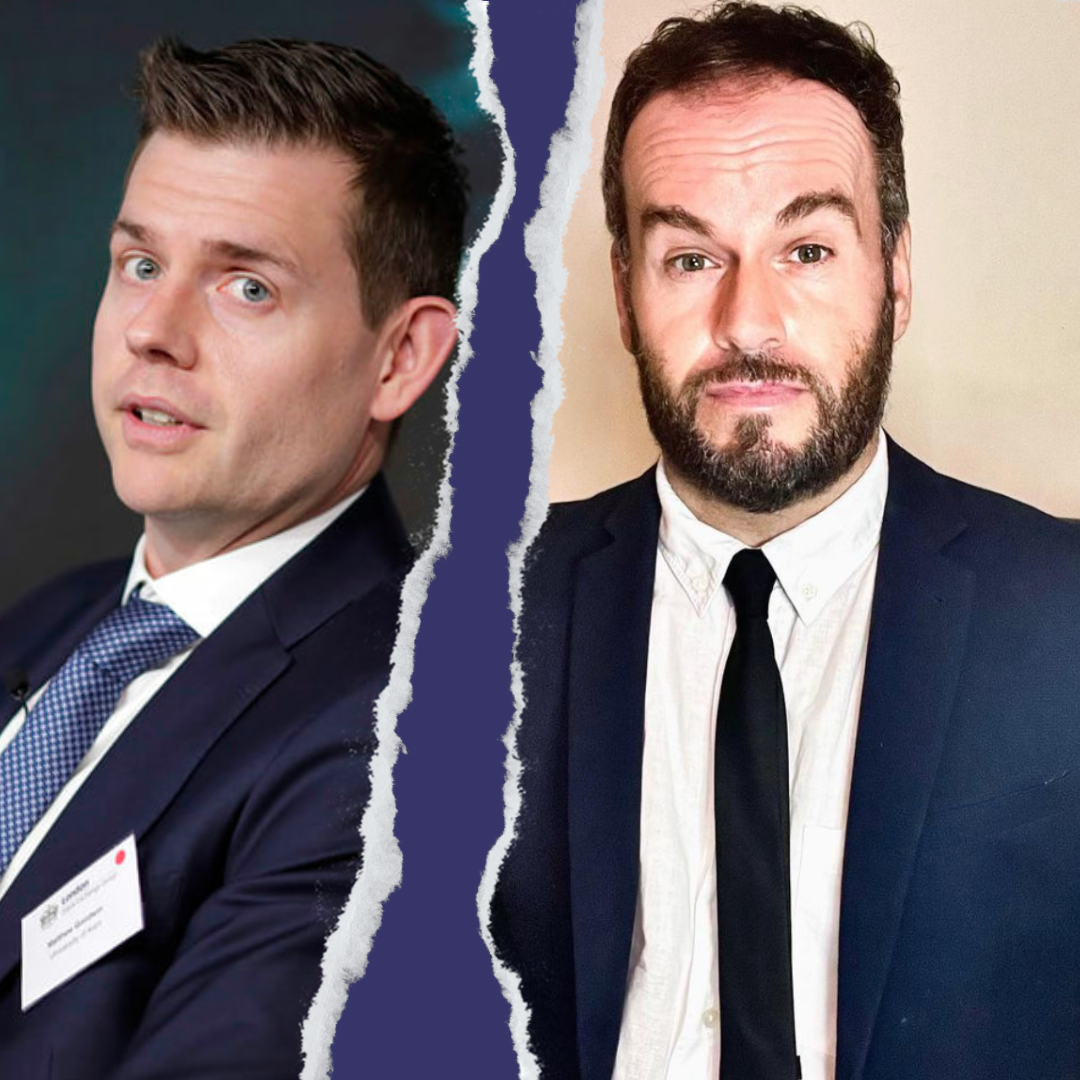The global march of censorship
Toby Young on why the fight for free speech is just getting started.

Want to read spiked ad-free? Become a spiked supporter.
Western liberal societies are becoming dangerously censorious. Express a dissenting view on gender, race, Covid or climate and you could soon find yourself punished. Cancel-culture mobs could mobilise to deprive you of work. Social-media firms could blacklist or shadow ban you. Now banks are getting in on this illiberal act too, cutting off their services to supposed undesirables. Worst of all, in Britain and much of Europe, people are being routinely arrested, fined and locked up for breaching so-called hate-speech laws. Free speech is under assault from every angle.
Toby Young, founder and director of the Free Speech Union (FSU), joined Brendan O’Neill on the latest episode of The Brendan O’Neill Show to discuss the global march of censorship and how we can fight back. What follows is an edited extract from their conversation. Listen to the full thing here.
Brendan O’Neill: Broadly speaking, how has the fight for freedom of speech gone this year?
Toby Young: There’s been both good and bad news. The bad news is probably worse than the good news, but let’s start with the good.
This year, the UK government passed the Higher Education (Freedom of Speech) Act, which is something the FSU has been lobbying for for about three years in various capacities. It will provide free speech and academic freedom on campus with slightly more robust legal protections. Many of the people who the FSU has had to help fight for their speech on campuses, both faculty members and students, would have been in a stronger position had this bill been law when we helped them.
Crucially, however, this act only applies in English universities. And that’s particularly relevant, because things are looking bad for free speech in Scotland. Even though the Scottish government hasn’t yet activated its authoritarian Hate Crime and Public Order Act, it looks as though Holyrood will do so next year. Apparently, the police and the courts in Scotland have been gearing up for the legislation to come into effect. That means that anyone found guilty of behaving in an ‘abusive’ manner ‘intended to stir up hatred’ against protected groups could face up to seven years in prison. That’s obviously going to pose a big threat to freedom of speech north of the border, especially when combined with the UK’s Online Safety Act, which passed into law in October this year. It’s certainly a net loss for freedom of expression.
The FSU and other free-speech advocacy groups, such as Big Brother Watch and Index on Censorship, did score a few minor victories though this year. At the FSU, we successfully pressured the government into scrapping a harmful-communications offence from the Online Safety Act.
This would have made it a criminal offence, punishable by up to two years in jail, to say something that caused a person serious distress. Obviously, this was a very nebulous, subjective standard – one that could have been easily weaponised by political activists to shut down anything they disagree with. We were very concerned about that. But we lobbied hard against it and, in the end, the government dropped the offence.
Interestingly, the inclusion of this offence was one of the recommendations made by the Law Commission. In fact, in a report it published last year, the commission recommended that England and Wales should introduce a hate-crime law exactly like the one in Scotland. We obviously lobbied hard against that proposal. And the harmful-communications offence was the only piece of it that remained – thankfully, we managed to stop that from becoming law. Looking forward, though, I’m sure that a Keir Starmer-led Labour government would introduce a hate-crime bill that is very similar, or potentially even worse, than the one that was passed in Scotland two years ago.
O’Neill: How is free speech faring beyond the UK? Is it any better?
Young: Internationally, the picture has been pretty bleak. Michael Shellenberger and Matt Taibbi have done some great work exposing what Shellenberger coined as the ‘censorship industrial complex’ – this is the coordinated effort that has been happening between governments, social-media firms and other agencies to suppress various forms of dissent. We’ve seen it particularly around key areas like the lockdowns, the Covid-19 vaccines, the war in Ukraine and climate change.
We saw similar developments during the lockdown here in the UK, brilliantly exposed by Big Brother Watch earlier this year. We now know that NGOs, Whitehall departments and branches of the security services had been working together to monitor criticism of the UK government’s Covid policies.
The story is the same around the world, with many countries attempting to crack down on dissent and criminalise hate speech. Just look at the hate-crime bill that’s currently going through the Irish senate. Irish Taoiseach Leo Varadkar is trying to use the recent unrest in Dublin to ram it into law before Christmas. This would make it a crime to say anything, online or in person, that someone from a protected category perceives as offensive or hateful.
Beyond Ireland, there are also hate-crime bills winding their way through both the New Zealand and Australian parliaments. There’s a proposal to introduce a hate-crime bill in Northern Ireland, which the FSU is trying to push back against.
There does seem to be an internationally coordinated effort by the censorship industrial complex to suppress dissent across a range of areas. Unfortunately, it has been incredibly effective so far. And worst of all, it’s happening under the radar. Most people don’t even know this is happening. Before we know it, we’ll wake up and find that there are a huge number of things we’re not allowed to say anymore.
Toby Young was talking to Brendan O’Neill on The Brendan O’Neill Show. Listen to the full conversation here:

Matthew Goodwin and Brendan O’Neill – live and in conversation
Wednesday 20 December – 6.15pm to 7.15pm GMT
This is a free event, exclusively for spiked supporters.
Picture by: Twitter.
Who funds spiked? You do
We are funded by you. And in this era of cancel culture and advertiser boycotts, we rely on your donations more than ever. Seventy per cent of our revenue comes from our readers’ donations – the vast majority giving just £5 per month. If you make a regular donation – of £5 a month or £50 a year – you can become a and enjoy:
–Ad-free reading
–Exclusive events
–Access to our comments section
It’s the best way to keep spiked going – and growing. Thank you!









Comments
Want to join the conversation?
Only spiked supporters and patrons, who donate regularly to us, can comment on our articles.